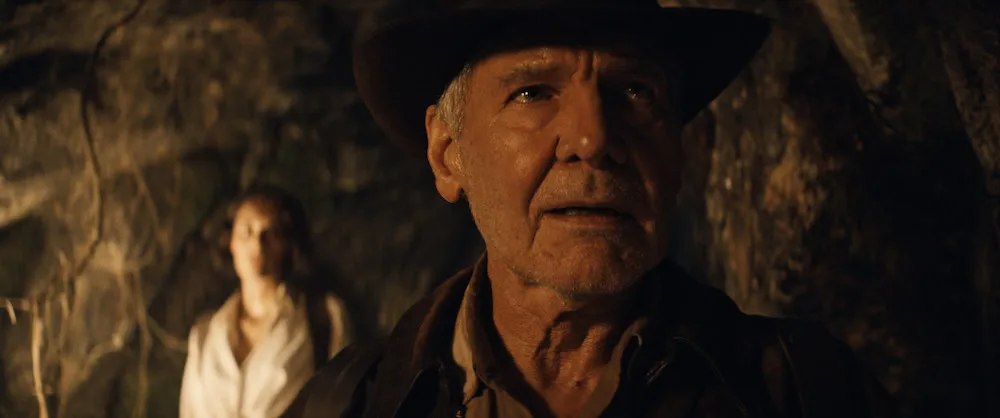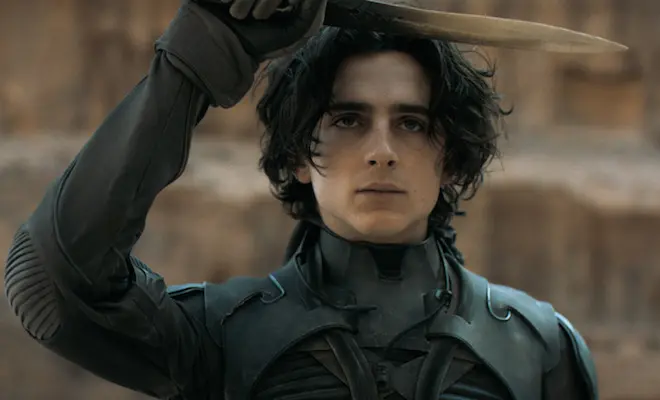 When I received the Blu-ray copy of Dead Poets Society in the mail the other day, I made a crack to one of my friends at work about Robin Williams.
When I received the Blu-ray copy of Dead Poets Society in the mail the other day, I made a crack to one of my friends at work about Robin Williams.
“I got a new Blu-ray to review today,” I said.
“What was it?” he asked.
“It’s that one Robin Williams movie where he’s an outsider-slash-rebel who finds himself working in a stuffy, tightly-wound, authority-driven institution where free will and an imaginative or humanitarian spirit is considered an abomination. And before you know it, he’s turned the place just COMPLETELY upside down, and he’s forced the authority figures to look inwards and question their own values.”
My friend puzzled for a few moments. “Good Morning Vietnam?”
Nope. “Patch Adams?”
Wrong again.
“Oh! The one where he’s a teacher!”
And at that moment, my mind switched gears from mocking Robin Williams’ tendency to play rebellious figures straight down into wondering why the specifics of Dead Poets Society seemed to elude my friend.
As I’ve already buried the lead to a large degree, let me make the following statement before I ramble any further: Dead Poets Society is a great film. And I’m completely baffled as to why it’s more or less been buried in the memories of many a cinemaphile.
Because even though Williams was all but parodying himself in this type of role by the time he got to Patch Adams, it’s unquestionable (at least in my mind) that Dead Poets Society was his finest starring role, and in many ways – in spite of its late 50’s setting – it’s perhaps the most timeless story he’s ever been involved in telling.
The movie follows young Todd Anderson (Ethan Hawke) – who is beginning his first year at a prestigious prep school in the shadow of his accomplished older brother – and his roommate Neil (Robert Sean Leonard), who faces his own struggles with a domineering father.
But their course (along with the course of several of their friends) changes when they meet Professor John Keating, an English teacher who introduces them to the true beauty of both words and poetry and introduces them to the true meaning of “Carpe Diem” – encouraging the boys not only to make the most of themselves but also to buck authority to do so when necessary.
Inevitably, all stories about rebellion are, at their heart, about the struggle between practicality and ideals; in that respect, Dead Poets Society may very well be among the most true-to-form story of challenging the establishment ever committed to film.
Whereas Good Morning Vietnam is inextricably a story about a specific era, Dead Poets Society could be rewritten slightly to take place at any time in any place.
As it is, the writing is very strong (screenwriter Tom Schulman was awarded with the 1989 Academy Award for Best Original Screenplay) and provides a cohesive and well-structured arc for each of its characters.
The supporting performances from a young Ethan Hawke and a young Robert Sean Leonard (who later found fame as James Wilson on FOX’s House) are excellent.
To be fair, at this point in his career, Hawke was more-or-less interchangeable with Chris O’Donnell, but his work is strong in this picture nonetheless.
As for Williams, this is my favorite of all his performances. And the reasoning is that, at least by Robin Williams standards, he’s subtle in this movie. It’s clear from his work onscreen that his focus is more on being rather than acting.
If you look at Williams’ body of work, his best acting is done when he resigns himself to simply being a character within a story rather than displaying an obsession with being the center of attention.
Of course, it’s arguable that the strength of Williams performances is due, at least in part, to the work of director Peter Weir, who I would argue is one of the most underrated filmmakers of the last thirty or so years.
Altogether, Dead Poets Society is one of the strongest pieces of the late 80s/early 90s corridor of film that’s all too often dominated by maudlin productions and overproduced epics, and it’s a film that deserves a more prominent place in the minds and memories of film lovers.

High-Def Presentation
Disney’s presentation of Dead Poets Society comes with a 1080p AVC-encoded transfer that comes across as soft from time-to-time, but that has more to do with the source material than anything. For the most part, the movie looks as good as it ever has. There are two or three scenes where there’s some fairly heavy artifacting that’s impossible to ignore, but for the most part the video transfer is perfectly serviceable.
Some highlights of the video transfer are the sharp, lifelike colors of autumn as well as some very well-rendered textures.
The audio, a 5.1 DTS-HD Master Audio, provides clear dialogue and enough attention to ambient noise to qualify it as a passable release.
The movie wasn’t exactly packed with big sound-centric moments to begin with, though, so a lack of audio punch isn’t exactly something you can hold against the flick.
Beyond the Feature
All the disc’s bonus features have been ported from previous Special Edition DVD release, but that’s not to say that they aren’t worth checking out.
Most prominent among the movie’s extras is an audio commentary featuring Weir, Schulman, and cinematographer John Seale. It’s an informative commentary that offers a wealth of information about certain scenes which came close to going off in different directions that what was included in the final cut. The track’s participants come off as a bit dry in certain spots, but for the most part it’s a pretty good commentary track.
The film’s other bonus features include:
- Dead Poets: A Look Back (27 minutes) – The cast (mostly the actors who played Keating’s students) offer their take on Weir and Williams in a retrospective look at the film. It’s both interesting and worth a look for the “look at those kids now” aspect of it all.
- Raw Takes (8 minutes) – These are a handful of unedited takes that Weir originally intended to intercut with one of the movie’s most powerful scenes.
- Master of Sound: Alan Splet (11 minutes) – A look back at the career and accomplishments of the Academy Award-winning sound designer.
- Cinematography Master Class (15 minutes) – Seale hosts a fascinating look at the intricacies of lighting and shot design that delivers some insight into the responsibilities and skills required of a film’s director of photography.
- Theatrical Trailer (3 minutes)
All special features are presented in standard definition.
On the whole, Dead Poets Society is a film that has held up remarkably well over the course of the last 22 years, and Disney has given it the audio/visual treatment it deserves.
Click here to shop for Dead Poets Society on Blu-ray for a discounted price at Amazon.com (January 17, 2012 release date).



